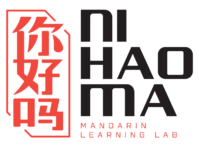Have you ever wondered how to say “I,” “You,” or “We” in Chinese? How do you differentiate between personal pronouns, demonstrative pronouns, and interrogative pronouns in Chinese? What are Chinese pronouns, how are they categorized, and how do you use them effectively? Let’s dive into this fascinating topic with Ni Hao Ma!
What are Chinese pronouns?
Pronouns are words used to replace nouns or noun phrases in a sentence, making the sentence more concise and avoiding repetition.
In many ways, Chinese pronouns are similar to those in English. For instance, just as English has “I,” “you,” and “he/she,” Chinese has equivalent pronouns that serve the same purpose.
Example:
- 我看过那本书。 (Wǒ kànguò nà běn shū.)
I’ve read that book.
In this example, the pronoun 我 (Wǒ) means “I.”

Types of Pronouns in Chinese
Similar to English and many other languages, Chinese pronouns are divided into several categories, each serving a unique function in communication.
1. Personal Pronouns
Personal pronouns (人称代词 – rénchēng dàicí) are used to refer to the speaker, the listener, or a third party. They are essential in everyday conversations and help identify the subject of an action or situation.
| Personal Pronouns | Examples |
|---|---|
| First Person Pronouns: 我 (wǒ): I, me 我们 (wǒmen): We, us 咱们 (zánmen): We, us (including the listener) | 我是学生。 (Wǒ shì xuéshēng.) I am a student. 我们明天去开会。 (Wǒmen míngtiān qù kāihuì.) We are going to a meeting tomorrow. 咱们一起去吃饭吧! (Zánmen yīqǐ qù chīfàn ba!) Let’s go eat together! |
| Second Person Pronouns: 你 (nǐ): You 你们 (nǐmen): You (plural) 您 (nín): You (formal, polite, often used for elders or in formal situations) | 你会说中文吗? (Nǐ huì shuō zhōngwén ma?) Can you speak Chinese? 你们喜欢这个地方吗? (Nǐmen xǐhuān zhège dìfāng ma?) Do you all like this place? |
| Third Person Pronouns 他 (tā): He, him (for males) 她 (tā): She, her (for females) 它 (tā): It (for animals or objects) 他们 (tāmen): They, them (a group including males or a mixed-gender group) | 他喜欢打篮球。 (Tā xǐhuān dǎ lánqiú.) He likes playing basketball. 她是我的老师。 (Tā shì wǒ de lǎoshī.) She is my teacher. 它是一只小猫。 (Tā shì yī zhī xiǎo māo.) It is a kitten. 他们正在开会。 (Tāmen zhèngzài kāihuì.) They are in a meeting. |
2. Interrogative Pronouns
Interrogative pronouns (疑问代词, yíwèn dàicí) in Chinese are used to ask questions and gather information about people, objects, places, time, reasons, methods, quantities, and more.
Interrogative Pronouns for Informations
Interrogative Pronouns for Informations are used to ask about unspecified subjects or broader ranges of information, not limited to specific objects or individuals.
| Interrogative Pronouns | Meaning | Examples |
|---|---|---|
| 谁 (shéi) | Who | 他是谁? (Tā shì shéi?) – Who is he? |
| 什么 (shénme) | What | 你想买什么都行。 (你 xiǎng mǎi shénme dōu xíng.) – You can buy whatever you want. |
| 怎么 (zěnme) | How | 我们怎么去? (Wǒmen zěnme qù?) – How are we going? |
| 什么时候 (shénme shíhòu) | When | 你什么时候回来? (Nǐ shénme shíhòu huílái?) – When will you come back? |
| 多少 (duōshǎo) | How many/How much | 你有多少钱? (Nǐ yǒu duōshǎo qián?) – How much money do you have? |
| 哪 (nǎ) | Which | 你喜欢哪个?(Nǐ xǐhuān nǎ gè?) – Which one do you like? |
Interrogative Pronouns with Implicit Meaning
Interrogative pronouns with implicit meaning refer to pronouns used to inquire about an object, event, or person that the speaker either cannot recall clearly or prefers not to specify.
Sometimes, these pronouns are not employed to request actual information but instead convey a metaphorical meaning, hint at possibilities, express guesses, or communicate emotions and attitudes.
| Pronoun | Meaning | Example |
|---|---|---|
| 谁 (shéi) | Who | 谁会相信这种事? (Shéi huì xiāngxìn zhè zhǒng shì?) – Who would believe such a thing? |
| 什么 (shénme) | What | 你说这是什么话? (Nǐ shuō zhè shì shénme huà?) – What do you even mean by that? (expressing discontent or confusion). |
| 怎么 (zěnme) | How/Why | 你怎么能这样? (Nǐ zěnme néng zhèyàng?) – How could you do that? |
| 多少 (duōshǎo) | How much/How many | 这件事多少和他有点关系。 (Zhè jiàn shì duōshǎo hé tā yǒudiǎn guānxì.) – This matter has something to do with him, at least to some extent. |
| 哪 (nǎ) | Which/Where | 哪有这样的道理? (Nǎ yǒu zhèyàng de dàolǐ?) – How could that possibly make sense? |

3. Demonstrative Pronouns
Demonstrative pronouns (指示代词, zhǐshì dàicí) are used to refer to specific people, objects, or locations. In Chinese, these pronouns function similarly to “this,” “that,” “here,” and “there” in English. Depending on context, demonstrative pronouns can indicate proximity, time, or specific entities.
Demonstrative Pronouns for Proximity
- 这 (zhè): this, this one, here (close to the speaker).
- 这里 (zhèlǐ)/这儿 (zhèr): here, this place.
- 那 (nà): that, that one, there (far from the speaker).
- 那里 (nàlǐ)/那儿 (nàr): there, that place.
Examples:
- 这是我的书。 (Zhè shì wǒ de shū.) – This is my book.
- 这里很安静。 (Zhèlǐ hěn ānjìng.) – It’s very quiet here.
- 那是我的电脑。 (Nà shì wǒ de diànnǎo.) – That is my computer.
Demonstrative Pronouns for Time
- 这 (zhè): this, referring to the present or recent time.
- 那 (nà): that, referring to a past or more distant time.
- 那时候 (nà shíhòu): at that time, back then.
Examples:
- 这几天天气很好。 (Zhè jǐ tiān tiānqì hěn hǎo.) – The weather has been great these days.
- 那个时候,我还在上学。 (Nàge shíhòu, wǒ hái zài shàngxué.) – Back then, I was still in school.
- 那时候我还小。 (Nà shíhòu wǒ hái xiǎo.) – I was still little at that time.
By understanding and practicing these pronouns, learners can navigate conversations with more precision and confidence, enhancing their fluency in Chinese.
Demonstrative Pronouns of Quantity
- 这么多 (zhème duō): this much, so much
- 那么少 (nàme shǎo): that little, so few
Examples:
- 为什么这么多人? (Wèishéme zhème duō rén?)
Why are there so many people? - 工作那么少,工资却很高。 (Gōngzuò nàme shǎo, gōngzī què hěn gāo.)
There is so little work, yet the salary is very high.
Using Pronouns in Chinese
Each type of pronoun in Chinese serves a specific function, so it’s important to understand how to use them correctly.
Using Personal Pronouns in Chinese
Personal pronouns in Chinese are words used to refer to people or groups of people in conversation. They are divided into the first person, second person, and third person.
| The Grammatical Functions of Personal Pronouns in Chinese | Examples |
|---|---|
| Acting as the Subject of a Sentence: Personal pronouns are used as the subject to indicate who is performing the action. | 他们正在踢足球。 (Tāmen zhèngzài tī zúqiú.) They are playing soccer. 我每天早上七点起床。 (Wǒ měitiān zǎoshang qī diǎn qǐchuáng.) I wake up at 7 a.m. every day. |
| Acting as the Object of a Sentence: Personal pronouns can be used as the object, indicating the recipient of the action. | 老师教我们汉语。 (Lǎoshī jiào wǒmen hànyǔ.) The teacher teaches us Chinese. 我昨天见到了你们。 (Wǒ zuótiān jiàn dào le nǐmen.) I met you all yesterday. |
| Acting as a Possessive Modifier: Personal pronouns can also be used with the particle “的 (de)” to express possession. | 他们的公司很大。 (Tāmen de gōngsī hěn dà.) Their company is very large. 这是我的家。 (Zhè shì wǒ de jiā.) This is my house. |
When multiple personal pronouns appear in the same sentence, the usual order is: second person > third person > first person. This order shows respect by mentioning the listener first, followed by others, and lastly oneself.
Example:
- 你和他都同意我的意见吗?
(Nǐ hé tā dōu tóngyì wǒ de yìjiàn ma?)
Do you and he both agree with my opinion?
Using Interrogative Pronouns in Chinese
Interrogative pronouns in Chinese are words used to ask questions, typically appearing in interrogative sentences. They serve various grammatical functions depending on their role in the sentence, such as being the subject, object, attributive modifier, complement, or adverbial.
| The Grammatical Functions of Interrogative Pronouns in Chinese | Examples |
|---|---|
| Acting as the Subject of a Sentence: Interrogative pronouns can be used as the subject of a sentence, indicating the person, thing, or event the speaker wants to inquire about. | 谁是你的老师? (Shéi shì nǐ de lǎoshī?) Who is your teacher? 什么在桌子上? (Shénme zài zhuōzi shàng?) What is on the table? |
| Acting as the Object of a Sentence: Interrogative pronouns can also function as the object, representing the entity that the verb is acting upon. | 老你在找什么? (Nǐ zài zhǎo shénme?) What are you looking for? 他们请了谁参加会议? (Tāmen qǐng le shéi cānjiā huìyì?) Who did they invite to the meeting? |
| Acting as the Attribute Modifier of a Sentence: Interrogative pronouns can modify a noun to inquire about its characteristics or qualities. | 什么颜色是你喜欢的? (Shénme yánsè shì nǐ xǐhuān de?) What color do you like? 谁的书落在桌子上了? (Shéi de shū luò zài zhuōzi shàng le?) Whose book fell on the table? |
| Acting as the Adverbial of a Sentence: Interrogative pronouns can function as adverbials to inquire about the time, place, manner, reason, or degree of an action. | 你什么时候回家? (Nǐ shénme shíhòu huíjiā?) When will you go home? 你怎么去学校? (Nǐ zěnme qù xuéxiào?) How do you get to school? |
| Acting as the Complement of a Sentence: Interrogative pronouns are sometimes used as complements to indicate the degree, direction, or result of an action. | 他跑得怎么样? (Tā pǎo de zěnme yàng?) How is he running? 他工作得怎么样? (Tā gōngzuò de zěnme yàng?) How is his work going? |
| In rhetorical questions: Interrogative pronouns are also used in rhetorical questions to express emotions or emphasize an opinion. | 谁不想成功? (Shéi bù xiǎng chénggōng?) Who doesn’t want to succeed? 你怎么可以这样? (Nǐ zěnme kěyǐ zhèyàng?) How can you do this? |

3. Using Demonstrative Pronouns in Chinese
Demonstrative pronouns in Chinese are used to specify or identify a particular person, thing, or event. They are commonly used to indicate the object in a specific context and can replace nouns or serve as attributive modifiers, objects, or adverbials in a sentence.
| The Grammatical Functions of Demonstrative Pronouns in Chinese | Examples |
|---|---|
| As the Subject of a Sentence: When a demonstrative pronoun is used as the subject in a sentence, it helps to identify who or what is performing the action. | 这很重要。 (Zhè hěn zhòngyào.) This is very important. 这些都是我的。 (Zhèxiē dōu shì wǒ de.) These are all mine. |
| As the Object of a Sentence: Demonstrative pronouns can replace the object in a sentence, indicating the entity affected by the action of the verb. | 你看见那个了吗? (Nǐ kànjiàn nàge le ma?) Did you see that? 我喜欢这个。 (Wǒ xǐhuān zhège.) I like this. |
| As an Attributive Modifier: A demonstrative pronoun can function as an attributive modifier to provide additional information about the noun it modifies, asking about a specific characteristic of the noun. | 那辆车很漂亮。 (Nà liàng chē hěn piàoliang.) That car is very beautiful. |
| As an Adverbial Modifier: When used as an adverbial modifier, a demonstrative pronoun gives information about the location, time, or extent of an action. | 这里很安静。 (Zhè lǐ hěn ānjìng.) It’s very quiet here. 这些天天气很热。 (Zhèxiē tiān tiānqì hěn rè.) The weather has been very hot these days. |
| As a Complement: A demonstrative pronoun can also act as a complement in a sentence, providing additional details about the degree or manner of the action. | 他做得很好。 (Tā zuò de hěn hǎo.) He did it very well. 我告诉你怎么做的。 (Wǒ gàosu nǐ zěnme zuò de.) I told you how to do it. |
Some Tips for Using Pronouns in Chinese
Using Chinese pronouns requires a good understanding of grammar and how they interact with classifiers or nouns for more precise expression. Here are some things to keep in mind when using Chinese pronouns:
- The pronoun 您 (nín) is the respectful form of “you” (the second-person pronoun). When communicating with superiors or elders, use 您 instead of 你 (nǐ) to show respect and politeness.
- Pronouns can combine with reflexive pronouns to emphasize the subject or indicate self-action and responsibility. For example:
我们自己负责。 (Wǒmen zìjǐ fùzé.)
We take responsibility. - Demonstrative pronouns must be paired with a classifier if the noun following it is countable. For example: 这本书 (zhè běn shū – this book), 那个苹果 (nàge píngguǒ – that apple), etc.
Conclusion
Chinese pronouns are a crucial part of the language’s grammar, helping to make sentences concise and avoid redundancy. Each type of pronoun serves a specific function, so it’s important to understand how to use them correctly.
We hope this article from Ni Hao Ma has provided useful insights into Chinese pronouns. To learn more grammar and get an in-depth understanding of native speaker usage, sign up for Ni Hao Ma’s online Chinese courses for 1-1 classes with native teachers and enjoy exciting offers!



